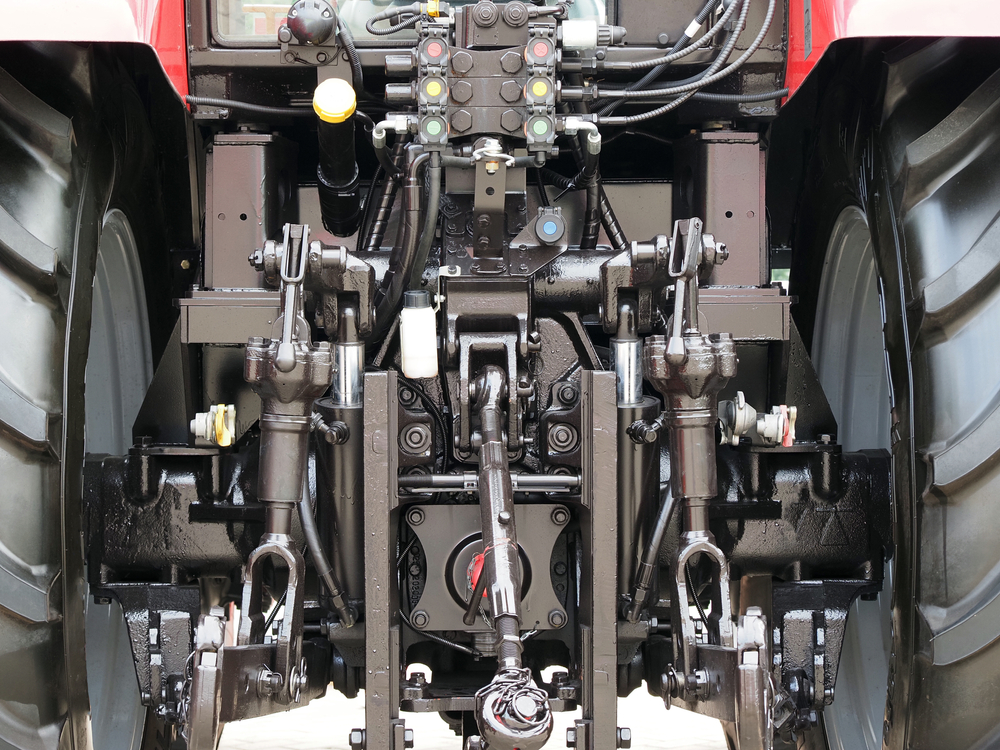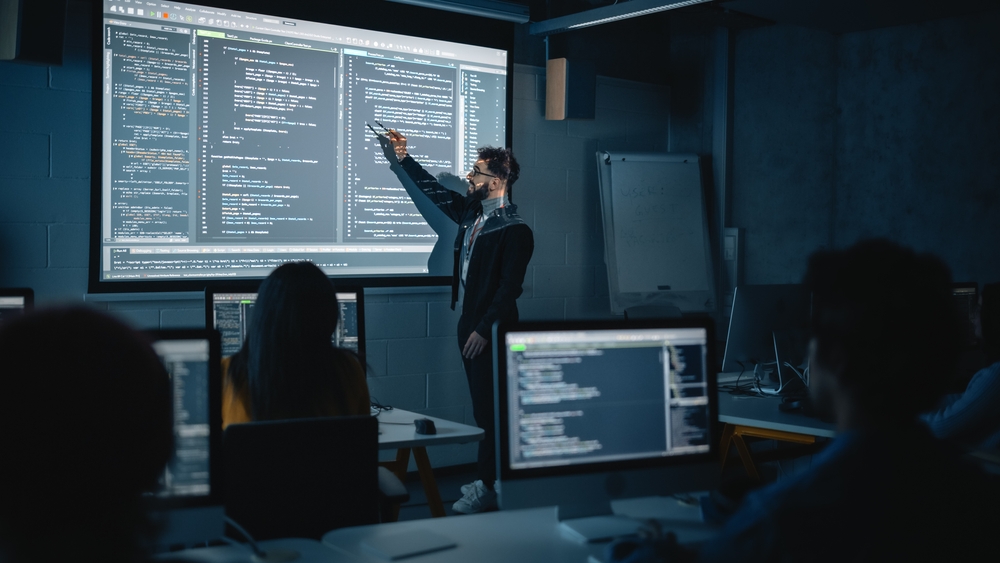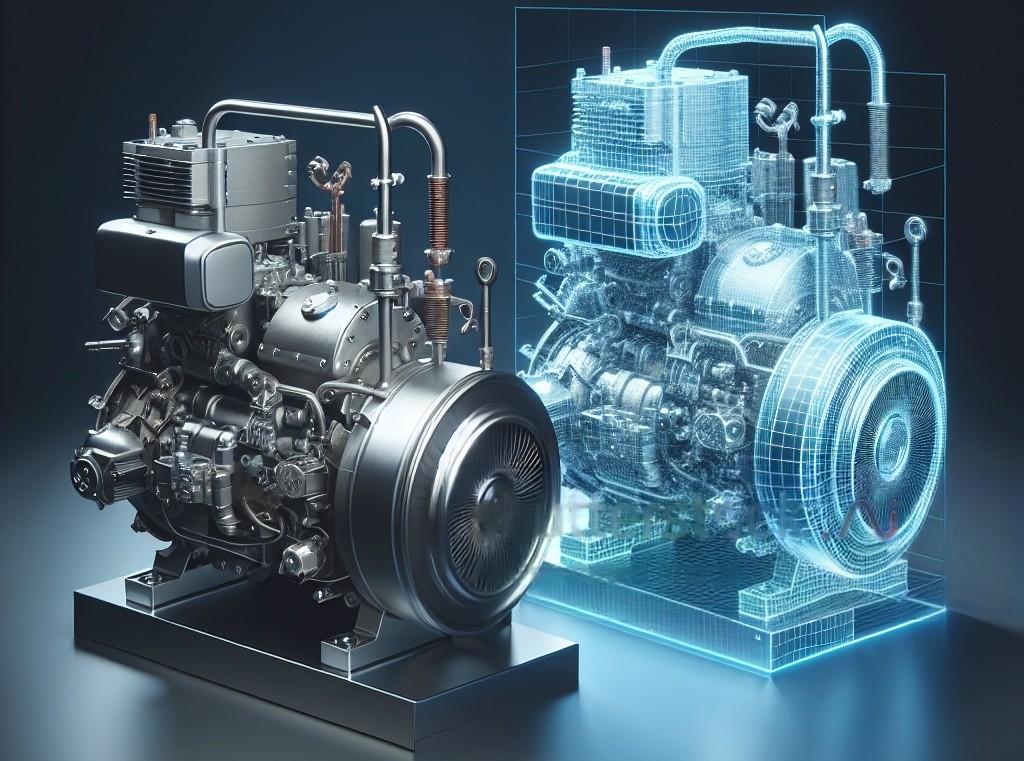Custom courses
Hydraulic course

- Introduction to basic hydraulic concepts and analysis of main components through practical examples.
- In-depth coverage of ISO symbols, circuit reading, pressure losses, and an introduction to simulation.
- Goal: A comprehensive overview of the sector with a focus on key aspects and real-world applications.
The course execution method can be in person, online or in mixed mode depending on the requests. All modules correlate the theoretical parts with practical examples, completed by application exercises during the lesson and, where possible, by physical parts to be inspected live (for example some components).
The lessons are always accompanied by slides that follow and summarize the concepts of the entire course with text, images and videos. The material is completed by the Excel sheets with exercises and a bibliography with the reference books and scientific papers.
The training course ends approximately in 40 hours but its structure is completely flexible and customizable also radically changing its duration. It is possible to select topics separately, decide the desired level of detail and insert insights dedicated to a specific area of interest.
Finally, it is possible to add the rating package for both parts: end-of-module questionnaires for the teaching effectiveness and feedback questionnaire from the students.
Below is a list of macro-topics addressed during the course:
- Basic elements and principles of hydraulics: equations, laminar and turbulent flow, pressure drops, fluid properties, etc.
- Hydraulic systems: symbols, generation and use groups of hydraulic power, basic/intermediate/advanced schemes, load sensing, etc.
- The hydraulic components: pumps, motors, regulation valves, cylinders, accumulators, tank, measuring instruments, etc.
- Lubrication, contamination and filtration
Modeling and simulation course

- Introduction to the logic and procedures for modeling and simulating components and systems.
- Use of OpenModelica software with the SmartFluidPower library for dynamic simulations.
- Goal: Define a structured method for simulating fluid power systems, with two levels of depth.
All modules can be executed in person, online or in mixed mode depending on requests. In both levels the theory is largely supported by practical exercises with the software in which real components or systems are simulated: the models can be proposed by SmartFluidPower but can also be requested based on specific interest.
The lessons are always accompanied by slides summarizing the key concepts and by a bibliography that collects in-depth books and papers. All exercises and simulation models created during the course are provided in a virtual library within OpenModelica.
The hours of each level of the course expressed below describe an indicative value since much of the structure is widely customizable: by modifying the desired level of detail, the number and difficulty of the exercises, the duration of each module can change radically.
The basic module starts from the fundamental concepts of simulation, and then applies it through the fundamental elements of the Modelica programming language. The use of the OpenModelica software is explained both in general and in relation to the SmartFluidPower dynamic libraries. It is full of exercises in each module and has a final section dedicated to the complete development of a model of a component or system (which can also be proposed by the user). The course has an indicative duration of 60 hours.
Below is a list of macro-topics addressed during the course:
- Introduction to modeling and simulation
- Basics of the Modelica language
- The OpenModelica software
- The libraries
- Exercises
- Modeling and simulation of a component/system
The advanced module goes into the details of the Modelica language syntax and its integrated use with OpenModelica, with the aim of creating customized components and libraries. In the end a virtual model is developed in detail, including advanced calibration with other types of simulations and sensitivity analysis of the results. The structure is almost entirely customizable as it can be adapted to a case of interest proposed by the user. The course has an approximate duration of 40 hours.
Below is a list of macro-topics addressed during the course:
- Advanced circuit simulation
- The advanced Modelica language
- Custom components
- Building libraries
- Advanced modeling and simulation of a component/system
Interface design course

- Introduction to VBA in Excel for creating custom interfaces for simulation.
- From basic development to advanced interfaces, integrating Excel, VBA, and OpenModelica.
- Goal: Develop standalone user interfaces to run virtual model simulations.
All modules can be executed in person, online or in mixed mode depending on requests. The program includes a large section in which the procedures explained are put into practice, creating virtual model interfaces at different levels of complexity.
The teaching material includes slides with the key concepts explained during the course, a virtual library in OpenModelica with the collection of all the exercises and Excel files with the interfaces created.
The course ends approximately in 30 hours but, with the wide possibility of selecting the number and level of detail of the interface examples to be created, its duration can be radically customized.
Below is a list of macro-topics addressed during the course:
- Excel and the VBA language
- The OMShell application
- Interface structure
- Exercises
